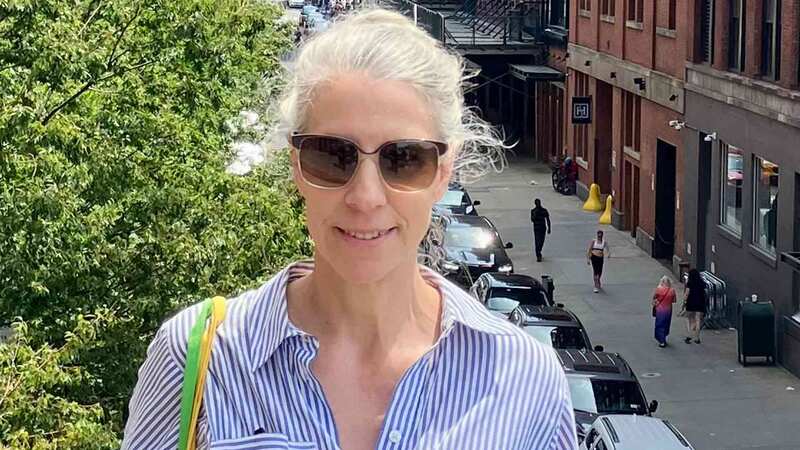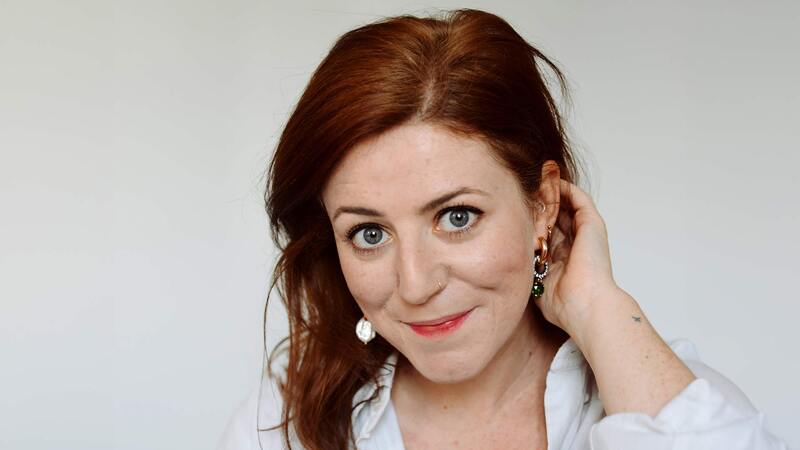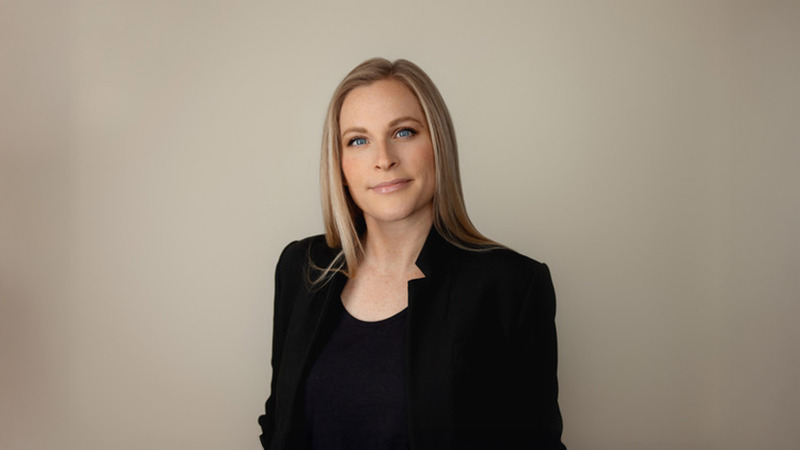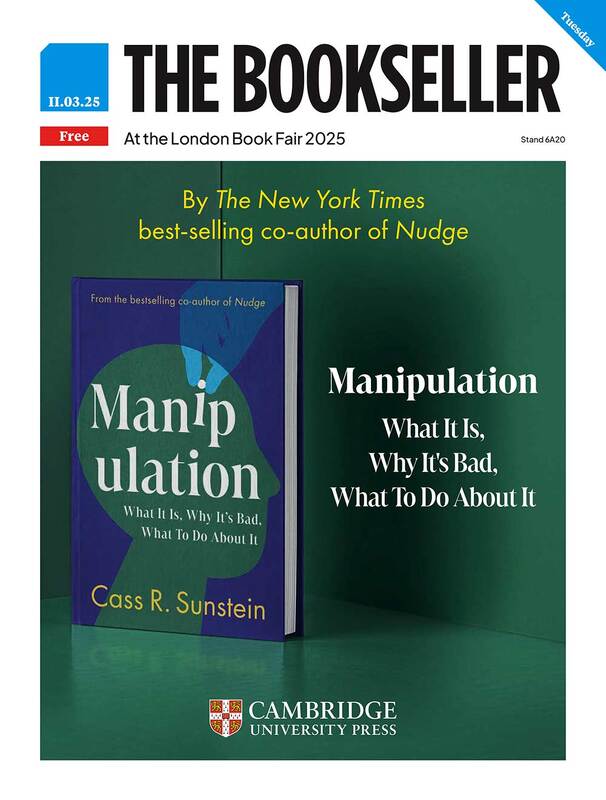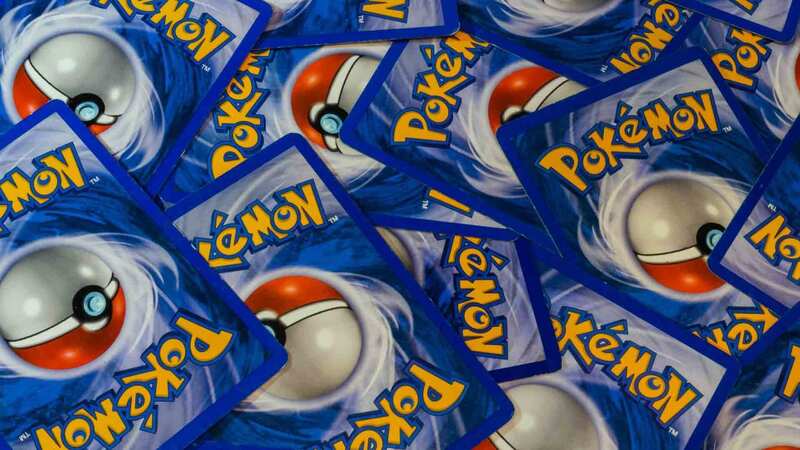You are viewing your 1 free article this month. Login to read more articles.
Horror genre 'rises from the grave' as sales boom
Horror and ghost stories are rising from the literary grave and seeing a resurgence in sales.
While relatively small, the category in Nielsen BookScan saw its highest sales in four years in 2017, with the genre up almost a third in value this year to date.
Industry figures have attributed the boom to the recent success of supernatural screen horror such as Netlfix's "Stranger Things", a resurgence in interest in the books of Stephen King and Shirley Jackson and a “blurring of genre lines” from historical literary fiction and psychological thrillers. The genre's popularity could also be a response to current "scary" world affairs, while others believe it provides a good framework through which to explore sexuality and gender in response to the #MeToo movement.
Figures from Nielsen BookScan show that the horror and ghost stories category was up significantly last year, coming in at £4.2m in value and nearly 550,000 copies sold, the highest volume for four years. For the year to date the category is already up 29% in value and volume, Nielsen figures show.
Agents and editors have also reported seeing a surge in submissions of horror and ghost stories and retailers say they are selling more books in the genre.
Foyles fiction buyer Drew Hunt told The Bookseller. “We have seen a significant increase in horror sales from 2016 to 2017, up around a third year-on-year, with sales for 2018 on a similar trajectory.”
He believes the increase in popularity is partly due to more anthologies of classic stories being published.
“Over the last six months there’s been an increase in publishers selling horror anthologies of both repackaged crime classics and of ghost stories written by contemporary authors not known for writing in the horror tradition,” Hunt said. “September Publishing’s Eight Ghosts released last year is a good example of the latter, using authors such as Max Porter and Jeanette Winterson as a bridge for those of us not initiated into the horror genre.”
Literary agent Sam Copeland of RCW agreed. “Even a few months ago the very word 'horror' was toxic in publishing. It just shows that no genre dies for good - horror is the genre that rose from the grave,” he said.
Waterstones buyer Kate McHale was one of many industry figures who cite The Silent Companions (Raven Books) by Laura Purcell as one of the many break-out titles which helped to boost the trend for darker narratives, saying that “sales in horror have got off to a good start this financial year”.
“Classic ghost stories and gothic thrillers are also perennially popular for us, and this year the old favourites have been joined at the top of our bestsellers by The Silent Companions, a brilliantly eerie and compulsive novel that evokes the best Victorian ghost stories,” she said.
Harry Illingworth, agent at D H H Literary Agency and marketing and communications manager at London's Goldsboro Books, also praised Purcell as well as Andrew Michael Hurley's The Loney (John Murray) as helping break horror and supernatural out to a wider audience. “I think a few years ago it would have been hard to predict such huge commercial success for these books, but this year we’re seeing more gothic mysteries than ever come through,” he said.
Meanwhile, Hunt believes that The Silent Companions is one of many recent historical which "appeals to both readers after something ghoulish and set in the past”.
“The rise of historical fiction along the lines of Sarah Perry, Jessie Burton and Imogen Hermes Gower, whose bold storytelling is laced with traces of the fantastical, combined with current popularity of cosy crime and nostalgia publishing, has influenced horror, giving it a longer reach in the market," he said.
“As well as writers more squarely in the horror and ghost tradition... there’s some really interesting publishing blurring the genre lines, riffing on tropes associated with horror writing but lacking the nostalgia. Books like Jesmyn Ward's Sing, Unburied, Sing, or Hari Kunzru's White Tears are really ghost stories, categorised in literary fiction, who employ supernatural themes not for shock value, but in the service of producing nuanced and evocative contemporary novels.”
The intrigue in mystery novels and “cosy crime” is also leading to a resurgence in the horror and ghost backlist with Shirley Jackson and Agatha Christie titles seeing a boom sales.
“It’s not only the front end publishing though where horror is having a good time - you only have to look at how many people will cite Shirley Jackson as a favourite author, or who have just started reading her for the first time over the last year or so to see the hunger that’s there,” Illingworth said.
Alison Hennessey, editorial director of Bloomsbury imprint Raven Books, agreed that Jackson is “finally getting the critical acclaim she deserves” with the authors’ sales up a huge 654% up in volume and 627% up in value last year compared to 2012, according to Nielsen BookScan.
Hennessey believes that the most recent Christie adaptations from the BBC “have amped up the darkness and moved away from the cosiness of previous years” and helped renew interest in darker reading material, along with other shows and films. Christie's titles were up 72% in volume last year, with 116,757 books sold for £876,701 according to Nielsen BookScan, mainly due to the big screen adaptation of Murder on the Orient Express (HarperCollins).
Many trade figures who spoke to The Bookseller emphasised the importance of the screen in sparking an accompanying interest in fiction.
Hunt believes that the latest cinematic adaptation of Stephen King's “It" last year has boosted the genre’s popularity but also tapped into a wider trend. “Last year was strong for Stephen King with the two adaptations of “It” and “The Dark Tower” selling well in both tie-in and original edition,” he said. The big-screen release of “It” saw King’s books soar 59% up and value 67% up in 2017 compared to the year, before while the film-tie edition from Hodder sold 104,890 copies.
Netflix’s science-fiction horror show “Stranger Things” has also helped drive readers to other-worldly realms, Illingworth believes.
“The film and TV business has been hot off the mark and there’s been some excellent horror films lately such as "A Quiet Place" along with Stephen King adaptations and of course "Stranger Things". They have really raised the bar in terms of quality from what people have been used to, and I think that there’s been a knock on effect into publishing because of the appetite that is obviously there,” hr said.
Many agents and publishers told The Bookseller that the tumultuous political climate is increasing readers’ interest in supernatural stories. llingworth believes recent the “surge” is partly due to “the current state of world events and politics”.
Ellie Steel, senior editor at Harvill Secker, put a growth in submissions with a supernatural element down to rocky world politics. “The world does feel like quite a scary place at the moment,” she said. “There is a rise of extremism in whatever form… and horror is a way you can take thing to extremes,” she said.
Hennessey added: “I think horror and ghost stories provide a ‘safe’ form of fear; they allow us to test ourselves, to scare ourselves safely.”
In particular, a tranche of new female writers are using the horror framework to explore the #MeToo movement, and the politics of gender and sex.
Steel said: “When you enter horror it is transgressive, helps you explore a different point of view. It ties in with the concept of shape-shifting, which features in Daisy Johnson’s stories [Fen, published by Jonathan Cape in 2016].”
The trend shows no sign of abating. Upcoming books in the horror and ghost genre include Julie Mayhew’s Impossible Causes (Raven) described by Hennessey as a modern day version of "The Craft" meets "The Crucible” on a remote Scottish island, while Bonnier Zaffre editorial director Sophie Orme is preparing to launch an “incredible debut voice” in Amanda Mason’s The Wayward Girls, a vivid coming of age tale with a ghostly twist billed as “The Girls with ghosts”. Meanwhile Steel recently acquired a collection of stories by an Indonesian writer Intan Paramaditha, which is “inspired by horror fiction, myths and fairy tales” according to its blurb.






